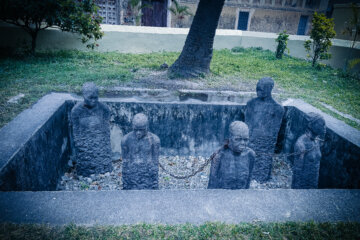Forensic Psychology
Forensic psychology is a subfield that merges the principles of psychology with the legal system. Here is a list of some major concepts, theories, and contributors in forensic psychology:
- Risk Assessment and Management
- Theorists/Contributors: Various
- Description: Involves evaluating the likelihood that an individual will engage in criminal behavior or pose a threat to themselves or others. Forensic psychologists use various assessment tools and develop plans to manage and minimize risks.
- Criminal Profiling
- Theorists/Contributors: John E. Douglas, Robert Ressler, and others from the FBI’s Behavioral Science Unit.
- Description: Criminal profiling involves analyzing crime scene evidence, behavioral patterns, and psychological traits to develop a profile of a perpetrator. This is used to help law enforcement agencies narrow down a pool of suspects.
- Psychopathy and Anti-Social Personality Disorder
- Theorists/Contributors: Robert Hare
- Description: Psychopathy is a personality disorder characterized by a lack of empathy, remorse, and antisocial behavior. Robert Hare developed the Psychopathy Checklist-Revised (PCL-R), which is widely used in forensic settings to assess psychopathy.
- Competency to Stand Trial
- Theorists/Contributors: Various
- Description: Forensic psychologists evaluate an individual’s mental state to determine if they are competent to participate in legal proceedings. This includes understanding legal charges, the ability to consult with an attorney, and understanding the legal process.
- Eyewitness Testimony and Memory
- Theorists/Contributors: Elizabeth Loftus
- Description: This research area examines the reliability of memory and eyewitness testimony. Elizabeth Loftus is known for her research on how memory can be unreliable and influenced by various factors.
- False Confessions
- Theorists/Contributors: Saul Kassin
- Description: Examining why individuals sometimes confess to crimes they did not commit. Saul Kassin has been a leading researcher in this area, focusing on the psychological processes and interrogation tactics that can lead to false confessions.
- Child Custody Evaluations
- Theorists/Contributors: Various
- Description: In cases of divorce or separation, forensic psychologists may be involved in evaluating the best interests of a child in terms of custody arrangements.
- Detection of Deception
- Theorists/Contributors: Paul Ekman, Aldert Vrij
- Description: Examining verbal and non-verbal cues to detect deception. Paul Ekman is known for his work on microexpressions, while Aldert Vrij has contributed significantly to understanding verbal and nonverbal cues in deception detection.
- Insanity Defense
- Theorists/Contributors: Various
- Description: Evaluation of a defendant’s mental state at the time of a criminal act to determine if they meet the legal criteria for being declared not guilty by reason of insanity.
- Therapeutic Jurisprudence
- Theorists/Contributors: Bruce Winick, David B. Wexler
- Description: Focuses on the impact of law and the legal system on individuals’ mental health and psychological well-being. It advocates for law reform to maximize psychological well-being and respect for due process.
- Polygraph Testing
- Theorists/Contributors: William Moulton Marston, John Augustus Larson
- Description: Involves using a polygraph machine to measure physiological responses (such as heart rate, breathing, and galvanic skin response) in an attempt to determine the truthfulness of a person’s statements.
- Violence Risk Assessment
- Theorists/Contributors: Vernon Quinsey, Monahan
- Description: This involves the assessment of the risk of violence by an individual. It is especially pertinent in cases involving individuals with a history of violent or aggressive behavior and is used to make decisions about sentencing, parole, and treatment.
- Expert Witness Testimony
- Theorists/Contributors: Various
- Description: Forensic psychologists may serve as expert witnesses in court cases, providing their professional opinion on psychological matters relevant to a case.
This list encompasses some of the key areas in forensic psychology, which blends psychological principles and research with the legal system.



